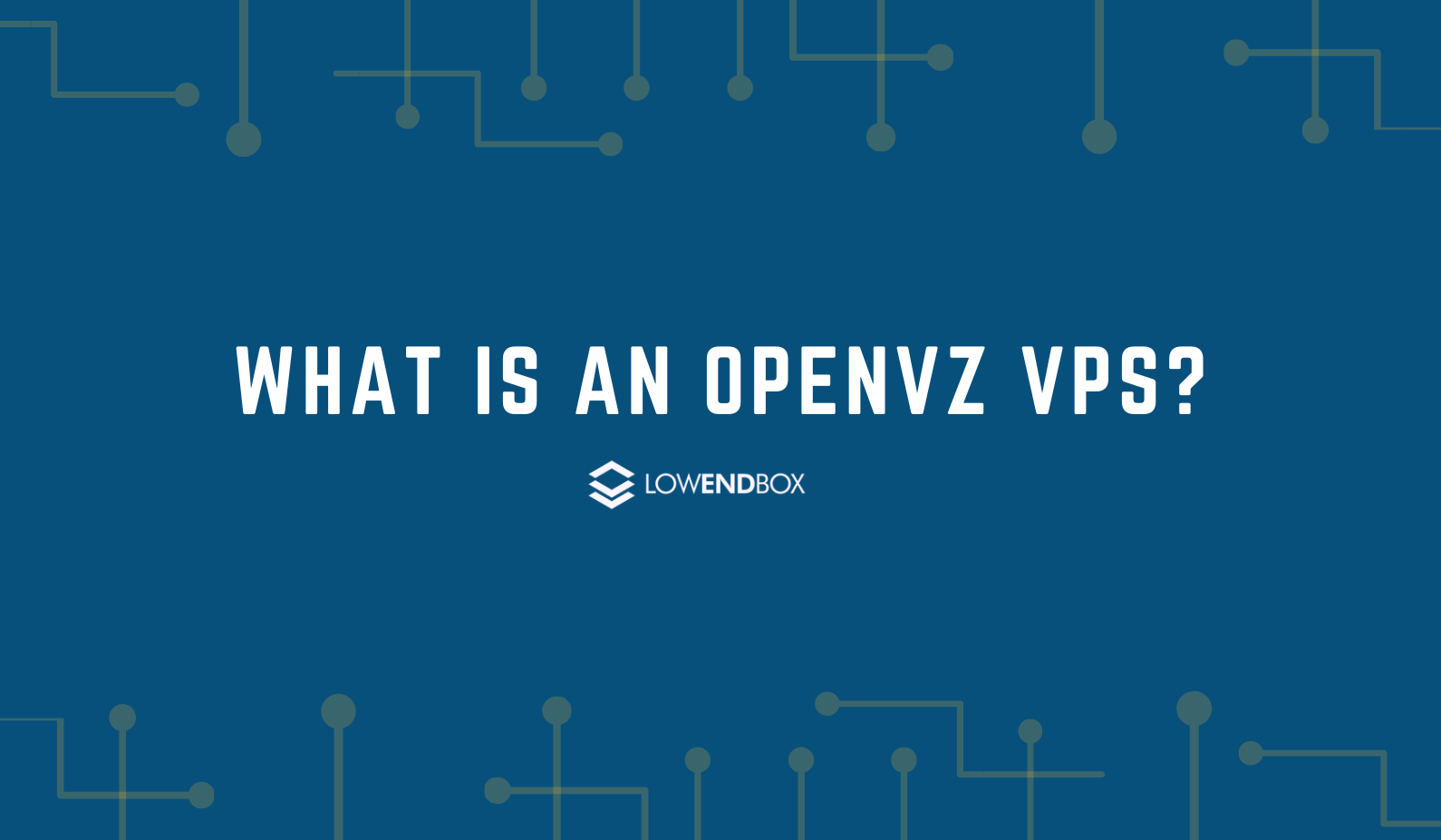What is an OpenVZ VPS?
OpenVZ is container-based virtualization for Linux. Each container performs and executes similar to a stand-alone server; a container can have root access and be rebooted independently.
An advantage of OpenVZ is less of a running overhead, which is why OpenVZ VPS’s tend to be the most affordable type of VPS’s in the marketplace. On the other side of the token – because of its minimal overhead – for some providers in the marketplace, this could mean cutting corners on hardware and running OpenVZ hypervisors based upon single processor servers, rather than Dual Processor servers typically associated with KVM nodes. This can have a trickle-down effect, causing slower and inconsistent performance to your VM.
Some restrictions of OpenVZ is that it only supports specific pre-configured Linux templates – and has no Windows OS support. Additionally, the kernel modules available are the ones loaded by the host – and if you are missing something (or if you want to run a custom kernel) – there will be no option to do that as you are sharing the kernel with the host node. Additionally, OpenVZ does allow the host to over-commit resources, this overselling of hardware can cause degraded performance to your VM if the resources on the host-level are being utilized by their neighboring virtual machines occupying the same host node as yours.
The upsides to OpenVZ are: overall quicker to start/stop/reboot, quick (nearly instant) OS reinstalls, and overall a nimble experience assuming the host node that the VM lives on is up to shape and not overloaded. In addition, your VM will use slightly less memory because it does not need to run its own independent kernel, and instead shares it with the host node because of the nature of containerization.
As you can see, OpenVZ VPS’s are a great choice if you are seeking affordability and do not require consistent or guaranteed performance. Your hosting needs would also have to be basic, as you will not be able to run a modified kernel. For the reasons explained above, it is easy to see why the market has shifted to prefer KVM virtualization over the years – not only is it now a virtualization platform that hosting providers prefer from an administrative standpoint, but also consumers. Consumers looking for a reliable VPS with predictable performance should seek out a KVM VPS, because of its wider OS variety, dedicated resources, ability to run any kernel. This also translates to support for Docker, ownCloud, and other applications that wouldn’t run efficiently on an OpenVZ machine.
This article was contributed by the folks at RackNerd – a frequent contributor and provider of the LowEndBox community. If you are looking for a VPS solution please click here to review recent LEB specials on cheap OpenVZ based VPS.
























Nice introduction article Dustin!
Hi Hover, thank you so much! If you have any suggestions I’d be happy to take them and contribute more to LowEndBox.
Hi Dustin, first of all I want to thank many vendors on LEB like you to contribute so many nice offers with affordable pricing. My first VPS was from LEB since 2013 and since then I kept using them for different purposes (dev, vpn, experiment etc.) This is a great community.
I don’t know much about VPS business, so the following are not “suggestions” but just my two cents :).
first, I feel that this is a market that needs more incubation. Many users have the needs in VPS but lacking of the knowledge of using them. They need more easy-to-understand knowledge and hands-on experience, then more and more will enter in this market as customers.
Second, almost all VPS vendors are using monthly flat rate for services, it is great for customers that use “low-end-boxes”, but for high-end boxes, users will think twice before they pay for the premium price because not everyone will use VPS 24×7 and many of the computing time is wasted because system is sitting idle. Maybe trying some on-demand model (computing time/memory/harddisk/traffic) will cover those customers. Charge only when user use it and how much they use (may be plus some fixed flat maintenance fee). Actually that model is used by all major cloud service providers and maybe the idea can be borrowed. And it can be foreseen that with the container based technologies (docker, k8s), low end boxes may be another option other than those big providers (because the big providers’ pricing are not low at all). Of course this business model needs to be analyzed carefully to see if that can find a balance between the customers and vendors.
Hope that helps. Thank you very much!
Hi Hover, I love the feedback. I understand exactly where you are coming from. Right now, we have considered offering a public cloud solution, though right now our focus has been predictable pricing and set resources, with the ability to scale the resources on demand. I understand, for some the default resources we offer may be more than needed – and our customers or potential customers are still able to appreciate our offerings and accept the extra cushion, for peace of mind considering our competitive pricing.
We also do have several private cloud customers – this is a good thing, and we haven’t eliminated a public offering. I hope we soon can do this :)
I sincerely appreciate the feedback – it’s always good to exchange ideas, and pursue opportunities.
Thanks for the contribution Dustin! This was a great little piece to help users who are not familiar with OpenVZ learn more about the technology.
Hi Jon – you’re very welcome! We are equally appreciative – love what you’re doing with the community.